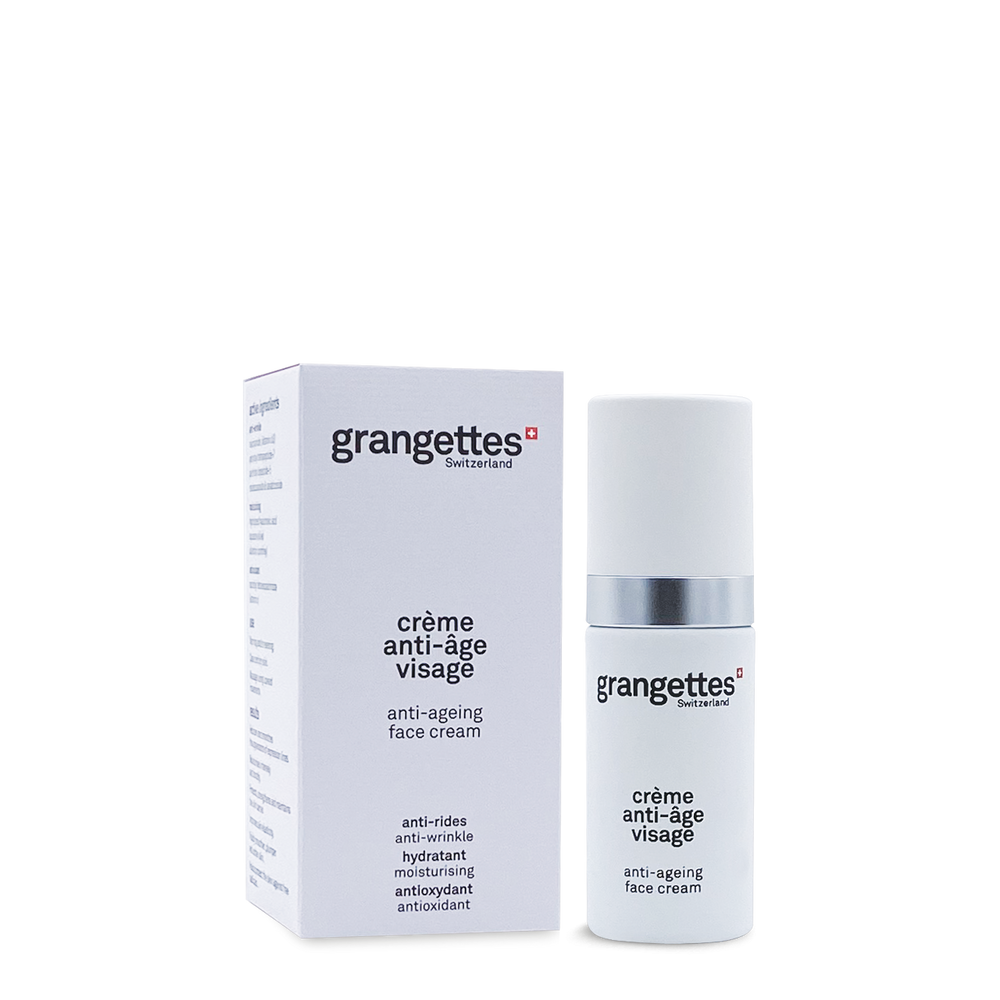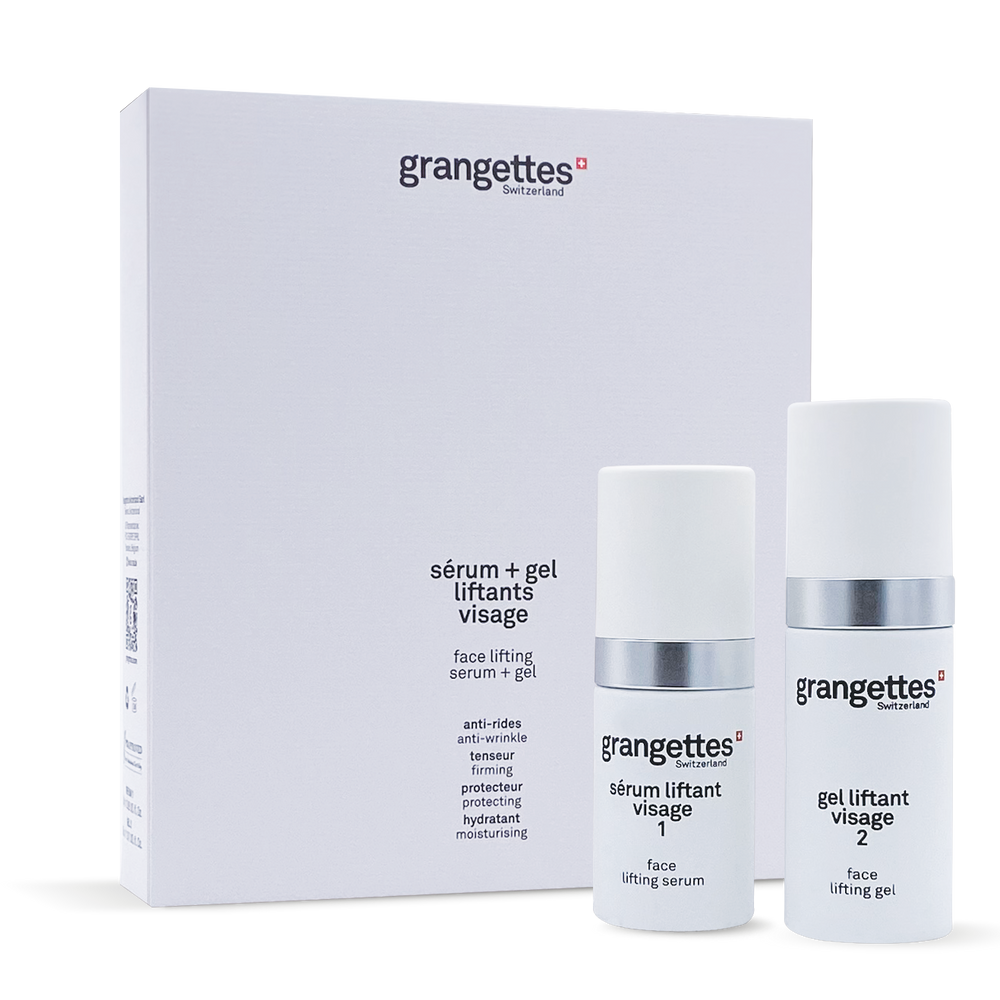Why does the skin lose its elastin?
Natural aging
As we age, elastin production in the skin naturally decreases. This process begins in our twenties, but the effects become more visible as we age. The body produces fewer fibroblasts, the cells responsible for the synthesis of collagen and elastin. As a result, existing elastin fibers begin to break down, and the skin gradually loses its elasticity and ability to regain its shape after being stretched.
Exposure to UV rays
We know that the sun is harmful to the skin in many ways. Sun exposure is one of the main causes of elastin breakdown. Indeed, ultraviolet (UV) rays, particularly UVA, penetrate deep into the skin and damage elastin fibers. This phenomenon is known as “photo-induced aging” or “photoaging,” and results in sagging skin, wrinkles, and loss of elasticity.

The genetic factors
Some people are genetically predisposed to losing elastin more quickly, depending on how quickly their body produces and breaks down this protein. A family history of premature skin aging may increase the likelihood of showing signs of loss of elasticity earlier in life.
Free radicals
Free radicalsare molecules produced by environmental factors such as pollution, cigarette smoke, and stress. They cause oxidative damage in the skin by attacking and degrading proteins, including elastin: this process leads to a loss of structure and firmness of the skin.
The hormonal changes
Hormonal changes, especially those that occur during menopause, can also influence elastin loss. A decrease in estrogen levels, for example, can affect the production of collagen and elastin, leading to a loss of skin firmness and elasticity.
A poor lifestyle
Certain lifestyle habits, such as smoking, eating a diet lacking in essential nutrients (such as vitamins C and E), or not getting enough sleep, can accelerate the loss of elastin.
The 4 benefits of elastin for the skin
Preserve the elasticity of the skin
One of the main benefits of elastin is its ability to maintain skin elasticity. It allows the skin to return to its original shape after being stretched or compressed. This is especially important in areas where the skin is frequently stretched, such as the face, neck, and joints. Good skin elasticity also helps prevent stretch marks and minimize the appearance of fine lines and wrinkles.

Prevent premature aging
By stimulating or maintaining elastin production, it is possible to delay the signs of skin aging . Skin care products containing ingredients that promote elastin production can therefore contribute to a more youthful and firmer appearance.
Improve healing and repair of the skin
Elastin plays an important role in healing and repair of the skin. When an injury or cut occurs, the skin's natural elasticity allows the tissues to retract and contract, promoting faster healing. skin rich in elastin can therefore recover more quickly from injuries and maintain a healthy and even appearance.
Protect yourself against external attacks
By maintaining high levels of elastin, the skin is better equipped to defend itself against UV rays, pollution , free radicals. Elastin helps reduce damage caused by sun exposure and pollutants.
Tips for stimulating elastin production
Adopt a diet rich in proteins and antioxidants
Nutrients play a key role in elastin production. A diet rich in protein, vitamin C , and antioxidants (such as citrus fruits, berries, and green vegetables) can help support the skin's natural elastin production. This type of diet helps maintain healthy, elastic skin.
Use treatments containing peptides
Peptides care for your skin and hair by promoting the production of proteins like collagen and elastin. Some cosmetics such as serums and creams containing peptides can help stimulate the production of elastin. By incorporating these products into a skin care routine, you can then gradually improve the elasticity and firmness of the skin.
Grangettes anti-aging cream contains palmitoyl tripeptide-7. This is an active ingredient whose main function is to reduce inflammatory processes in the skin, improving its firmness and elasticity. Palmitoyl dipeptide-5 is also present. This synthetic peptide is composed of a series of three amino acids (lysine, valine and lysil). It promotes the production of collagen and limits skin aging.
- Regular price
- 42,50 €
- Regular price
- Sale price
- 42,50 €
- Unit price
- per
Grangettes Switzerland Face Lifting Serum contains Acetyl Hexapeptide-8. Also known as "Botox in a bottle," this cosmetic ingredient is often used in anti-aging products.
- Regular price
- 85,00 €
- Regular price
- Sale price
- 85,00 €
- Unit price
- per
Use adequate sun protection
Regular use of a broad-spectrum sunscreen with a high sun protection factor (SPF) is essential to protect the skin from sun damage. This good reflex helps prevent premature loss of elastin and preserve the integrity of the skin.
Perform manual stimulation techniques
Facial massages and radiofrequency stimulation treatments are known to promote the production of elastin and collagen. In fact, by massaging the face, you stimulate the fibroblasts which go back to work and produce elastin.






